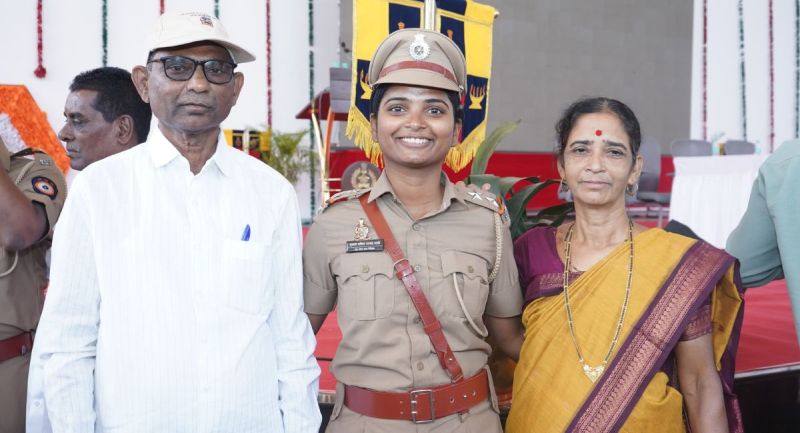By day, she enforced road safety as a Motor Vehicle Inspector at Thane’s Regional Transport Office. By night, she studied in silence — poring over scientific texts and orbital mechanics — often into the early hours. Today, Sujata Ramchandra Madke, a 28-year-old woman from Shirgaon village in Maharashtra’s Thane district, stands as the first woman from her region to be inducted as a scientist at the Indian Space Research Organisation (ISRO).
Her story — one of quiet perseverance, intellectual ambition, and defiance of structural odds — has emerged as a powerful narrative of rural India’s growing role in the country’s space ambitions.
A Long Journey from Village Roads to Vikram Sarabhai Centre
Raised in a modest family in Shirgaon, Sujata’s early life was marked by constraints both social and economic. Like many girls from agrarian backgrounds, higher education in science and technology was not the most accessible path. Still, with encouragement from her parents and support from mentors along the way, she pursued engineering, and later joined the Maharashtra Motor Vehicles Department — a stable government job and a position rarely associated with interstellar aspirations.
But Sujata never gave up on her dream of working in space science. After completing her shifts at the RTO — regulating traffic, conducting inspections, and managing enforcement — she would spend her nights immersed in ISRO preparation materials. For over a year, her routine was defined by discipline, determination, and long hours of study.
“Every day, after work, I studied until midnight or even later,” she told local media. “It was exhausting, but I knew what I was working toward.”
Cracking One of India’s Most Competitive Scientific Exams
ISRO’s recruitment for scientists is among the most rigorous in the country — combining technical tests, academic screening, and personal interviews. Thousands apply annually; few make it through.
When the results were announced, Sujata’s name stood out — not only as a successful candidate but as a trailblazer from a region with little prior representation in the national space agency. She is now set to join one of ISRO’s premier centers as a scientist in systems engineering, contributing to future satellite and mission designs.
Her selection has inspired a wave of local pride across Thane district, with educators, officials, and young students calling her achievement “historic” for the region.
A Role Model for Rural India’s Aspiring Scientists
For Sujata, this success is not just personal. It is symbolic. It is, she says, “a message to every girl who feels her dreams are too big for her background.”
In India, where access to elite scientific institutions is still concentrated among urban, upper-income groups, her rise through the state’s public service ranks into the country’s apex space agency represents a quiet revolution.
She hopes to eventually work on satellite development and earth observation technologies that could also benefit rural communities — including regions like her own. “Science should serve society,” she says. “I want to be a part of that.”


